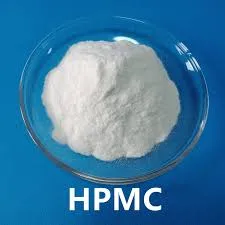
Nov . 05, 2024 20:33 Back to list
hydroxyethyl cellulose
Understanding Hydroxyethyl Cellulose Properties, Applications, and Benefits
Hydroxyethyl cellulose (HEC) is a water-soluble polymer derived from natural cellulose, which is one of the most abundant organic compounds on Earth. The modification of cellulose through hydroxyethylation results in this versatile additive that is extensively used across various industries. Due to its unique properties, HEC has become a significant component in numerous applications, particularly in the fields of pharmaceuticals, cosmetics, personal care products, and construction materials.
Properties of Hydroxyethyl Cellulose
HEC possesses a range of physical and chemical properties that make it suitable for diverse uses. One of its key characteristics is its ability to form a transparent and viscous gel when mixed with water. This viscosity can be manipulated by altering the concentration of HEC in the solution or by modifying the temperature and pH levels, making it an ideal thickening agent. Its water retention properties also contribute to its effectiveness in maintaining moisture in formulations, which is highly valued in cosmetic and personal care products.
Additionally, HEC is non-ionic, which means it does not carry any charge, allowing it to be compatible with a variety of other ingredients without causing destabilization. This property enhances its usefulness in formulations that require stability over a wide range of pH levels. HEC is also biodegradable, making it an environmentally friendly choice in comparison to synthetic polymers.
Applications of Hydroxyethyl Cellulose
1. Pharmaceuticals In the pharmaceutical industry, HEC is commonly used as a thickening agent and stabilizer in liquid formulations, including suspensions and emulsions. Its ability to enhance the viscosity of solutions helps in achieving the desired consistency, which is particularly crucial for oral liquids and topical preparations. Furthermore, HEC is used in controlled drug delivery systems, ensuring sustained release and improved bioavailability of active pharmaceutical ingredients.
2. Cosmetics and Personal Care The cosmetics industry benefits greatly from HEC's thickening and stabilizing properties. It is often included in lotions, creams, gels, and shampoos as it provides a pleasant texture and enhances the appearance of the product. HEC's water-retention ability helps keep skin hydrated, making it a valuable ingredient in moisturizers and skin treatments. Moreover, it acts as a film-forming agent, providing a smooth application on the skin and hair.
hydroxyethyl cellulose

3. Construction Industry In construction, HEC is employed as an additive in cement-based materials such as mortars, plasters, and tile adhesives. Its ability to improve workability and water retention makes it an essential component, ensuring better adhesion and strength in construction applications. HEC helps to prevent cracking and shrinkage, thus enhancing the durability of the finished products.
4. Food Industry Although less common, HEC is also utilized in the food industry as a thickening agent and stabilizer in sauces, dressings, and other formulations. It provides a desirable texture, enhances mouthfeel, and improves shelf stability.
Benefits of Using Hydroxyethyl Cellulose
The incorporation of HEC into different formulations offers numerous benefits. First and foremost, it improves the overall texture and consistency of products, leading to enhanced user experience. Its ability to retain moisture contributes to better product performance in personal care and cosmetic applications.
Furthermore, HEC is relatively easy to use and can be incorporated into formulations without requiring complicated processes. Its compatibility with other ingredients allows formulators to create complex formulations that are stable over time. The biodegradable nature of HEC also aligns with the growing consumer demand for sustainable and eco-friendly products.
Conclusion
In summary, hydroxyethyl cellulose is a multifunctional polymer that has gained prominence across various industries due to its unique properties and benefits. From pharmaceuticals to cosmetics and construction, HEC serves as a vital ingredient that enhances product performance and user satisfaction. As the demand for natural and sustainable solutions continues to grow, HEC is poised to play an increasingly important role in future formulations, offering a blend of functionality and eco-friendliness that meets modern consumer needs.
-
Versatile Hpmc Uses in Different Industries
NewsJun.19,2025
-
Redispersible Powder's Role in Enhancing Durability of Construction Products
NewsJun.19,2025
-
Hydroxyethyl Cellulose Applications Driving Green Industrial Processes
NewsJun.19,2025
-
Exploring Different Redispersible Polymer Powder
NewsJun.19,2025
-
Choosing the Right Mortar Bonding Agent
NewsJun.19,2025
-
Applications and Significance of China Hpmc in Modern Industries
NewsJun.19,2025







